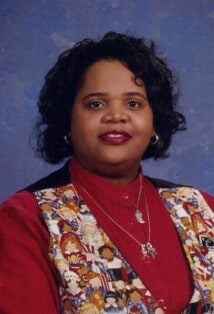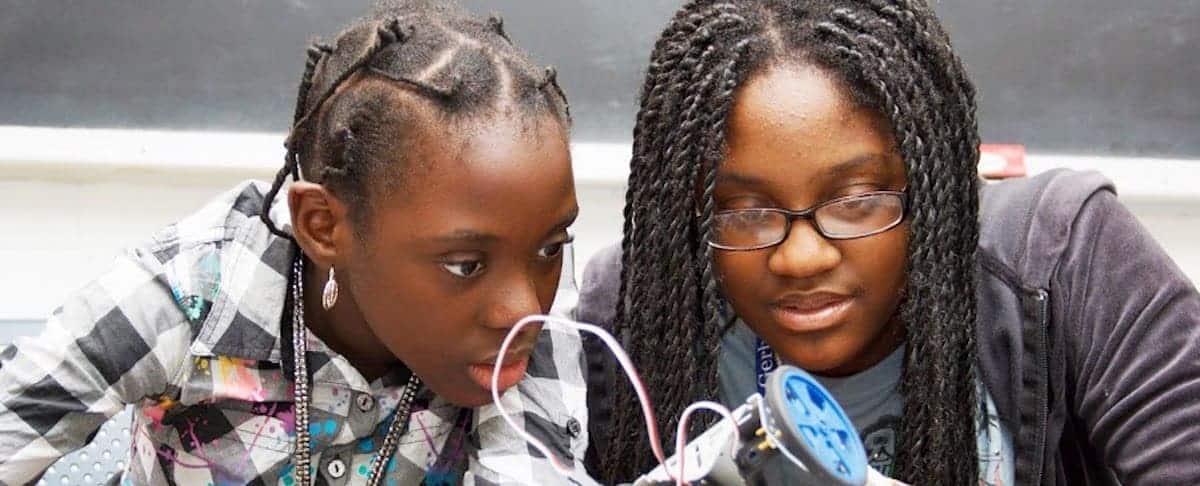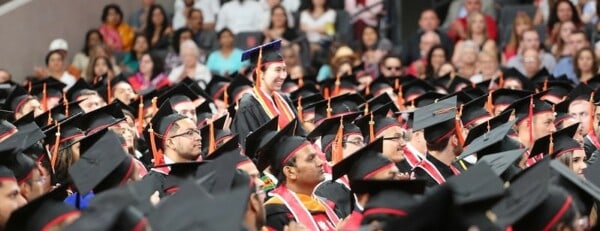Background

Educator Deborah Calhoun began teaching as a 6th grade general science teacher 34 years ago but soon after, started teaching high school biology. Deborah joined the faculty of Pike High School in Indianapolis, Indiana, 15 years ago and has taught Honors Biology, Regular Biology and Integrated Chemistry and Physics. Deborah now teaches biology for grades 9-12. In 2008, after noticing how Deborah successfully integrated analytical thinking and STEM in her classroom, a Pike High School Principal encouraged her to become the Science and Engineering Academy Leader. Deborah gladly took on the position because she wants her students to “believe in themselves and soar academically as well as succeed professionally.”
Deborah’s Classroom Initiatives
Deborah uses many creative tactics in her classroom to cultivate her students’ interest in STEM. Deborah allows students to take ownership of their learning by allowing students to design their own lesson plan twice per semester based on the material they have learned. This allows her students to display their mastery of the curriculum in a way that is comfortable for them. This flexibility drives her students’ success.
Deborah also promotes analytical thinking by hosting an in-class science fair. To keep students engaged, she encourages students to do projects based on topics or activities that interest them. For example, she allows students to do a project centered on determining the best-performing soccer ball or mascara. She once had a popcorn enthusiast in her class who conducted an experiment to determine which brand of popcorn had the fewest unpopped kernels after cooking according to directions. The key is that the students are excited and that they are using analytical thinking. Deborah allows 2 months for her students to complete the project and students often reflect that the project was a highlight of their time in Deborah’s class.
Deborah also makes an effort to introduce her students to careers in STEM during her class. Deborah hosts an in-class career expo, where she hosts representatives from several companies that hire STEM majors. She has students rotate to each representative to learn about the company and their path in STEM so that her students can envision their education in action.
In addition to these projects and in-class events, Deborah encourages her students to do their best work daily. Deborah has implemented a program in her classroom called “Mental Minds” where she allows students who have completed their in-class assignments early to take the remainder of their allotted time to go to a space in the back of the room and have a break. In her “Mental Minds” corner, Deborah has STEM Stations of the Week where her students can sit on bean bag chairs and complete a puzzle or create something from their imagination with building materials she provides. You can keep up with Deborah’s STEM Stations of the Week and her other initiatives by following @Pike_Biology on twitter.
Engineering and Career Readiness at Pike High School
Pike High School has embraced career readiness by forming seven learning communities centered around broad career themes, called academies. As the leader of the Science and Engineering Academy, Deborah’s role is to serve a staff of 16 teachers and 200 students by providing knowledge of engineering, seeking engaging interactive engineering activities and providing job shadowing and internship opportunities. Deborah also hosts professional role models in Engineering and Science fields to share their college and career experiences. Deborah seeks opportunities for her students to participate in Science Technology Engineering and Math (STEM) clubs, organizations and conferences.
Pike High School offers four elective engineering classes. Because of Pike’s promotional efforts, nearly 40% of students enroll in Engineering classes. Deborah played an instrumental role in bringing the Advanced Manufacturing and Logistics course for juniors and seniors to Pike High School through her connections with Conexus Indiana. This program teaches contextualized math and science topics to develop applied problem-solving skills needed to enter the manufacturing and logistics industry. Through her connections to Conexus, Deborah coordinates class field trips to local manufacturing and logistics companies, so students can realize the application of the STEM topics they are learning about. Deborah has found opportunities for her underclassmen to job shadow and for her juniors and seniors to have paid STEM internships.
Extracurricular STEM Activities
“At Pike, we bend over backward to make sure our students excel.”
Deborah and the rest of the Pike High School faculty are passionate about surrounding her students with every opportunity in STEM available to them, be it in the class or out. “At Pike, we bend over backwards to make sure our students excel,” Deborah reflects. Deborah isn’t afraid to ask questions to find new resources to help her students. Deborah and an Assistant Principal from Pike High School started the first high school chapter of the National Organization for the Professional Advancement of Black Chemists and Chemical Engineers (NOBCChE) networking with a Neuroscientist. Deborah knows role models matter when it comes to increasing female representation in STEM. After recruiting a female facilitator for the robotics club, the female student participation and retention for the club increased. Pike also has clubs affiliated with the National Society of Black Engineers (NSBE), the Society of Hispanic Professional Engineers (SHPE), and Girls Who Code. Deborah is looking forward to bringing SWENext to her students!
Going Above and Beyond
“When it comes to the students, you don’t say ‘this is not my job.’”
Despite being busy planning and executing all the exciting initiatives for her role as biology teacher and the Science and Engineering Academy Leader, Deborah finds time to support an interest in STEM in the wider community. Deborah developed and coordinated the Pike Township District Science Fair, open to elementary, middle and high school students for many years. Additionally, she finds the time to lead a two-week Science Adventures course at her district’s Summer STRETCH program. This program is open to students in grades 2 through 6 and the program brings in professionals, high school and college students to lead activities relating to many STEM topics. At the end of each week, students complete a science fair project in 2 days. Deborah explains that she runs these additional programs because “when it comes to the students, you don’t say ‘this is not my job.’”
Words of Advice
Throughout Deborah’s years of teaching, she has cultivated an expertise in STEM education that she is eager to share.
- Be flexible! Allow your students to take ownership of their learning by having some control over the projects they do. It is important to let your students display their knowledge in their own way. If a written test didn’t go well for your student, invite them to show their mastery of a topic orally.
- Have your “eyes, ears and mind open to what the students are saying.” Elicit feedback from your students. Deborah has the mindset that “every year, I’m a new teacher.” She enters the academic year with the mantra that “you’re a new teacher, so you have to bring something new to the table.” Ask your students what they enjoyed from your class and what they would change so that every year, you can be a new and improved teacher.
- Don’t be afraid of the answer “no,” because “no” means you’ve asked a question to which the answer could have been “yes.” The only way to find new opportunities for your students is to ask, so think of “no” as a positive answer. It provides closure.
- Tap into the resources around you. “I can’t do any of this by myself – Pike is just a wonderful family of adults who are there to try to cultivate excellence and academic growth in their students,” Deborah says. Seek assistance from your community, be it finding fellow teachers or professional engineers to facilitate clubs, or asking nearby companies for funding for your students to attend conferences.
If you are interested in hearing more of Deborah’s advice, check out the two books she authored: Life’s Lessons and Those Who Can, TEACH: A Book for New Teachers and Experienced Teachers.
Author
-

SWE Blog provides up-to-date information and news about the Society and how our members are making a difference every day. You’ll find stories about SWE members, engineering, technology, and other STEM-related topics.






